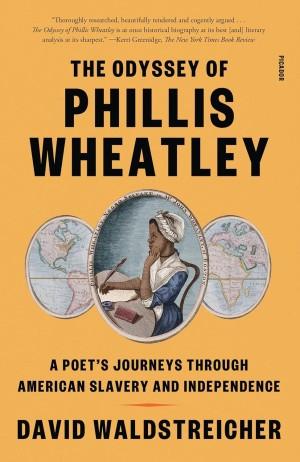 Admired by George Washington, ridiculed by Thomas Jefferson, published in London, and read far and wide, Phillis Wheatley led one of the most extraordinary American lives. Seized in West Africa and forced into slavery as a child, she was sold to a merchant family in Boston, where she became a noted poet at a young age. Mastering the Bible, Greek and Latin translations, and the works of Pope and Milton, she composed elegies for local elites, celebrated political events, praised warriors, and used her verse to variously lampoon, question, and assert the injustice of her enslaved condition. “Can I then but pray / Others may never feel tyrannic sway?” By doing so, she added her voice to a vibrant, multisided conversation about race, slavery, and discontent with British rule; before and after her emancipation, her verses shook up racial etiquette and used familiar forms to create bold new meanings. She demonstrated a complex but crucial fact of the times: that the American Revolution both strengthened and limited Black slavery.
Admired by George Washington, ridiculed by Thomas Jefferson, published in London, and read far and wide, Phillis Wheatley led one of the most extraordinary American lives. Seized in West Africa and forced into slavery as a child, she was sold to a merchant family in Boston, where she became a noted poet at a young age. Mastering the Bible, Greek and Latin translations, and the works of Pope and Milton, she composed elegies for local elites, celebrated political events, praised warriors, and used her verse to variously lampoon, question, and assert the injustice of her enslaved condition. “Can I then but pray / Others may never feel tyrannic sway?” By doing so, she added her voice to a vibrant, multisided conversation about race, slavery, and discontent with British rule; before and after her emancipation, her verses shook up racial etiquette and used familiar forms to create bold new meanings. She demonstrated a complex but crucial fact of the times: that the American Revolution both strengthened and limited Black slavery.
In this new biography, historian David Waldstreicher offers the fullest account to date of Wheatley’s life and works, correcting myths, reconstructing intimate friendships, and deepening our understanding of her verse and the revolutionary era. Throughout The Odyssey of Phillis Wheatley, he demonstrates the continued vitality and resonance of a woman who wrote, in a founding gesture of American literature, “Thy Power, O Liberty, makes strong the weak / And (wond’rous instinct) Ethiopians speak.”
David Waldstreicher is a Distinguished Professor of History at The Graduate Center, City University of New York.
He is also the author of Slavery’s Constitution: From Revolution to Ratification (2009); Runaway America: Benjamin Franklin, Slavery and the American Revolution (2004); and In the Midst of Perpetual Fetes: The Making of American Nationalism, 1776-1820 (1997). As editor, his books include Revolutions and Reconstructions: Black Politics in the Long Nineteenth Century (2020); the Library of America edition of The Diaries of John Quincy Adams (2017); Beyond the Founders; New Approaches to the Political History of the Early American Republic (2004); and The Struggle Against Slavery: A History in Documents (2001). His scholarly articles and books have won prizes from the Society for Historians of the Early American Republic, the Omohundro Institute of Early American History and Culture, the, Southeastern American Society for Eighteenth-Century Studies, and the American Jewish Historical Society. He has also written for the Boston Review, Atlantic.com and the New York Times Book Review.
Waldstreicher is an elected member of the American Antiquarian Society and the recipient of awards and fellowships from the Dorothy and Lewis B. Cullman Center for Scholars and Writers, New York Public Library; the American Philosophical Society; and the Gilder Lehrman Institute of American History, among others.
Before coming to the Graduate Center, he taught at Temple University, University of Notre Dame, Yale University and Bennington College.
